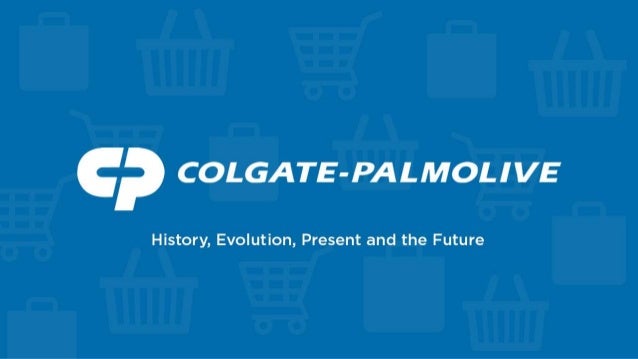
We were tasked with picking two companies/organisations that we think have a good and or bad corporate social responsibility (csr) and also how we ourselves as designers, consider our own personal social responsibilities as growing designers, what kind of company would you not want to work for, what are your messages as a designer, do you have a certain line you wouldn't cross?
The first company I decided to pick was Colgate - Palmolive as the company with a good csr. According to Forbes Colgate are number 9 in the top 10 companies with the best csr reputations. I decided to pick Colgate from the Forbes list because it was a less obvious choice and not only that but I figured it would be interesting to discover a bit more about them as a company. On the whole I believe one wouldn't really think too deeply about Colgate Palmolive's corporate social responsibility.
Colgate-Palmolive are a company that serve communities in which they do business in for example India, there they trade stock (and also internationally) help out local communities, putting back into values and customs and giving reasons for people to smile worldwide. The company's values of caring, global teamwork and continuous improvement are reflected in the quality of their products and it's reputation worldwide. Colgate Palmolive's long term sustainability strategy is focused on three areas, the planet, their performance and the people. They work towards protecting the environment, this is evident from their most recent commitment to making 100 percent of their packaging for three of four categories completely recyclable by 2020 (how's that for sustainability). Improving and enhancing the quality of the lives of individuals and the communities they serve. As a leader in the oral health care business they have a long serving attitude to spread oral health awareness amongst it's consumbers which I think is very respectable and credable for a company that I feel wouldn't be so much thought about on that kind of scale, at least from my own opinion. I think Colgate Palmolive's core values and morals as a company are quite admirable and their principles help us to understand why they are leaders in oral care business, their motto "World of Care" I think denotes their essence as a company.
http://www.sustainablebrands.com/news_and_views/products_design/mike_hower/student_proposes_re-designed_origami-inspired_toothpaste_thttp://www.colgate.co.uk/en/uk/oc/
https://www.forbes.com/sites/dividendchannel/2012/07/13/why-colgate-palmolive-co-is-a-top-25-socially-responsible-dividend-stock/#6f38ae5d1031
The second company I've decided to discuss are Nestlé, they are the company with a bad corporate social resposibility. Accoring to ZME science Nestlé are one of the most hated companies in the world, I was curios to find out why so I done some exploration and what I actually found out was quite staggering. I picked Nestlé because they are one of, if not the largest foodstuff corporation in the world and are the 27th largest company in the world, in the words of the CEO himself Peter Brabeck.
Nestlé is a Swiss multinational food and beverage company, with a range of products that include bottled water, breakfast cereals, ice cream, pet foods, baby food, confectionery, diary products, snacks, ice cream and a host of other consumable products. The focal point of my issue is on their water. They are actually the world's largest producer of bottled water, they supposedly believe water isn't a universal right which I agree is, but sadly a population aren't as fortunate as others. CEO Peter Brabeck had said "there are two different opinions on the matter (water), one opinion which I think is extreme, is represented by non-governmental organisation (NGOs), who bang on about declaring water a public right. That means that as a human being you should have a right to water. That's an extreme solution." I immediately disagreed with this statement, having access to water is definitely not an extreme solution in my opinion, but I would argue is an absolute commodity (our bodies are made of 60-70% water after all, we need to hydrate and refuel ourselves on the regular).
A lot of LEDC countries don't have the access the first world countries have, so what exactly are they meant to do? Having watched the interview I certainly felt he was being a bit dismissive when he exclaimed an opinion represented by NGOs were "banging" on about declaring water a public right, of course a non-profit organisation such as the NGOs will have this view because they care about these sorts of "extreme" issues, while it seemed Peter didn't so much. The other view stated that water is a foodstuff like any other, and like any other foodstuff it should have a market value. Peter seems to side more with this view saying he believes it's better to give foodstuff a value so that we're all aware it has a price, he also states the biggest social responsibility of any CEO is to maintain and ensure the successful and profitable future of his or her enterprise. Now from a business point of view I really do understand this, you are running a business, a company, an enterprise but to whose detriment, is exactly what's being questioned here. Though there may be sense in making society aware of water's value and price (be it in the market or not), it still is a raw, natural, material which I feel needs to be considered not just from a business point of view but from a survival point of view.
http://www.csrwire.com/members/10393-nestle
http://web.archive.org/web/20070409144431/http://www.babymilk.nestle.com/Who+Code+Issues/Allegations/
We as designers also hold a personal social responsibility in our jobs, so I think it's crucial for us to consider the implications of the companies we work for, because ideally you wouldn't want to be associated with the wrong kind of image (as least I wouldn't). There are plenty of companies out there that do have accidents, scandals and incidents and sadly these issues do create a knock on effect not just for a company's business dealings and revenues but for how they are portrayed in the media. Would you be happy as a designer, knowing you're behind the latest tobacco packaging that has a nation addicted to nicotine, or the gambling manuals you see at the casino that have people losing their life savings in a flash? Unethical promotions, pollution, or anything within a similar context, my question is where do you draw the line? The audience are going to see your work and develop views and opinions regardless of the social text, do you want your name to be attached in a positive light or negative light, what is your moral standing?








No comments:
Post a Comment